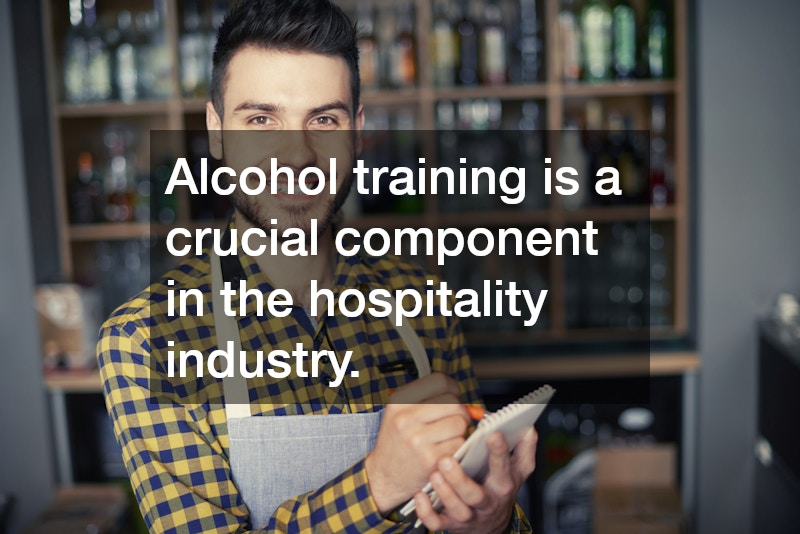In the hospitality industry, responsible alcohol service is not only a legal requirement but also a critical component of customer safety. Many individuals starting out in roles involving alcohol service undergo formal alcohol training programs. These programs are designed to educate servers and bartenders on how to responsibly serve alcohol, manage difficult situations, and understand the legal liabilities concerning alcohol consumption.
Alcohol server training is essential because it equips staff with the knowledge to prevent over-serving and underage drinking. Various states and establishments have distinct regulations, making this training a variable yet essential process.
As a server or bartender, undergoing this training can enhance your professionalism and competence in your role.
If you are preparing to start such training, you may be wondering what it involves and how it can benefit your career. This article offers an in-depth look at what you can expect from alcohol server training. We will explore its structure, key components, and the value it adds to both employees and establishments.
Structure of Alcohol Server Training
Alcohol server training typically consists of both theoretical and practical components. The theoretical part covers essential laws and regulations surrounding alcohol service. Participants learn about the legal drinking age, identifying intoxicated patrons, and understanding the implications of liability laws.
The practical aspect focuses on real-world scenarios where servers must make critical decisions. Trainees are often given case studies or role-playing scenarios to practice refusing service or handling a confrontational situation. This hands-on training ensures that servers are not just knowledgeable but also confident in applying their skills in actual settings.
Training sessions can vary in length but typically last anywhere from a few hours to a whole day, depending on state requirements and the depth of the course material. Some programs might even offer online options for flexibility. By the end of the training, participants are usually required to pass a test to receive certification.
Key Components of Alcohol Training
One of the central components of alcohol training is understanding how alcohol affects the body. Servers learn to gauge the level of impairment that alcohol can cause and how certain factors like weight, age, and food consumption affect intoxication levels. This knowledge aids servers in making informed decisions about when to cease serving a patron.
Another crucial aspect is learning the art of customer interaction. A server might need to navigate delicate conversations with patrons who may not be pleased when refused service. Training provides strategies for calm, respectful, and effective communication that prioritize safety and minimize conflict.
Lastly, alcohol training typically includes safe serving practices, such as measuring drinks accurately and recognizing fake IDs. Servers acquire skills that enable them to maintain compliance with legal standards and safeguard the establishment’s reputation. This empowers servers to be responsible facilitators of enjoyable yet safe drinking environments.
Benefits of Alcohol Server Training
Undertaking alcohol training benefits both the individual and the establishment. For servers, it significantly enhances job performance by boosting confidence and providing essential skills. Knowledge acquired through training also opens opportunities for career advancement within the hospitality industry.
From the employer’s perspective, having trained staff reduces the risk of legal issues and fosters a safe environment for patrons. Trained employees are better prepared to mitigate risks associated with alcohol consumption, minimizing incidents that could harm the business’s reputation. Moreover, it demonstrates the establishment’s commitment to responsible alcohol service and customer safety.
On a broader level, alcohol server training contributes positively to community safety. By preventing instances of over-service and ensuring that only those of legal drinking age are served, this training helps reduce potential alcohol-related incidents. When alcohol is served responsibly, it benefits not just the patrons and servers but society as a whole.
Starting alcohol server training is an essential step for anyone involved in serving alcohol within the hospitality industry. The training serves multiple purposes, including ensuring compliance with legal regulations, enhancing service quality, and promoting a safe drinking environment. For those new to this experience, understanding the expectations and benefits can ease the transition into becoming a responsible server.
Alcohol training is a crucial component in the hospitality industry, one that promises to equip servers with the necessary tools to handle alcohol responsibly. Whether you’re a newcomer or a seasoned professional, embarking on alcohol server training can be a transformative experience. Embrace this opportunity to grow both professionally and personally, contributing to safer, more enjoyable experiences for all.
.

